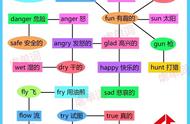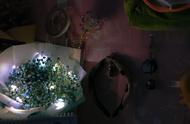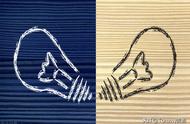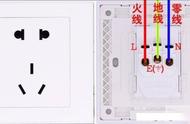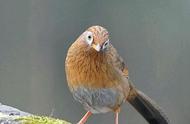Module 1
一、 重点短语
join in the discussion加入讨论 man-made wonder人造景观
natural wonder自然景观 agree with sb.同意某人
agree to do sth同意做某事 would like sth/want sth.想要某物
would like to do sth/want to do sth.想要做某事 most of…中的大多数
on the eastern coast of…在…的东海岸 in one’s opinion在…看来
early morning凌晨 at the top(of…)(在…的)顶部
millions of数以百万计的/无数的 to some degree 在一定程度上
look to the east 向东边看去 walk along/down 沿着…走
get out of the car/taxi从小轿车/出租车里出来 get off the bus下公交车
go through/across穿过 be afraid of…害怕…
in five minutes五分钟之后 reply to n/answer n回答…
100 metres high/in height 100米高(wide-width/ long-length)
二、 重点结构
1. one可作代词代指前面提到的同类不同物的事物的单数。
Where did your pen? I want to buy one.
ones可作代词代指前面提到的同类不同物的事物的复数。
Natural wonders are interesting than man-made ones.
it可作代词代指前面提到的相同的单数的事物。
Your pen is cute. Where did you buy it?
them可作代词代指前面提到的相同的复数的事物.
These photos are funny. When and where did you take them?
Exercise: I have lost my umbrella; I'm looking for _________.
I have lost my umbrella; I think I must buy_________.
2. 描述事物的长宽高等:sth/sb is 数字 计量词 adj(high/long/wide)
Exercise: 这栋建筑有67米高。_____________________________________.
3. little/few/a little/ a few/ a bit
1)a little
有点儿 不可数名词
a few
几个/有点儿 可数名词复数
little
几乎没有
few
几乎没有
Exercise
*I want to buy___________books, but I have__________money.
A. a few; little B. a few; little C. a little; a little D. a little; a few
*There are_____vegetables and_____fruit, so we just need to buy some apples.
A. a few; a little B. few; a little C. a few; little D. little; a few
2) a little/ a bit adj/adv. 有点儿(累,忙...)
我有点累了,我想休息一下。________________________________________________________
3) a little=a bit of 不可数名词
4) not a bit=not at all 一点儿也不
他一点儿也不累._____________________________
not a little=very 非常 他很累。____________________________________
4. sb. seem to do sth. 某人似乎要做某事 She seemed to be angry. 她似乎生气了。
It seems that 从句 It seemed that she was angry. 她似乎生气了。
3. *How long “多久,多长”,常对长度或者一段时间(for 一段时间)提问。
——How long have you been there? ——I have been there for 5 days.
*How far “多远”, 对距离提问。 —How far is it from your home to your school? —5 kilometers.
*How soon “多久之后才…”,常与将来时态搭配,对in 一段时间提问。
——How soon will you be back? ——I will be back in 5 days.
*How often“多久一次”,对频度副词(例如once a year(一年一次))提问。
——How often do you often go shopping? ——I often go shopping once a week.
*How many times“多少次”对次数提问。
—How many times have you been to Beijing? —Twice.
Exercise: —How long___________this book? —5 days.
A. do you buy B. did you buy C. have you bought D. have you had
4. 现在完成时态
1)意义:*用于动作发生在过去,并持续到现在的情况。
I’ve studied English for years.我学英语好多年了(一直在学)。
*用于动作发生在过去,对现在造成影响的情况。
I've had my lunch.我吃过午餐了(不想再吃了)
2)结构:have done/ has done
3)该时态的标志性单词常有for 过去的一段时间,since 过去的时间点/过去时态的从句,already, before, ever,yet等
4) 变否定句和疑问句时都在have/has上做变化。
I have already finished my homework.—I haven't finished my homework yet.—Have you finished your homework?
5) 现在完成时态的易考点
* have been to sp去过某地(已回来)
*have gone to sp去了某地(还没回来)
*have been in sp在某地(一段时间)
I _____________________Beijing for several times.我去过北京好多回了。
Tom_________________the library, so he is not here. 汤姆去了图书馆,所以他不在这儿。
The Browns have_______________China since 5 years ago. 布朗一家从五年前到现在一直在中国。
注:The 姓氏-s 表示一家人,为复数的概念。
*for 一段时间,
*since 过去的时间点/过去的时间段 ago(或用一般过去时的从句)
eg. I have been in Beijing ______5 years.
I have been in Beijing _______5 years ago.
I have been in Beijing________last year.
I have been in Beijing_______I was 5 years old.
*for/since都常用在现在完成时态中,且主句中的谓语动词常用延续性动词。
He has left China for 5 years. 错误,改为—He___________________________China for 5 years.
His grandfather has died since he was 5. 错误,改为—His grandfather_______________ since he was 5.
He has been to Beijing for years. 错误,改为—He _____________________ Beijing for years.
He has borrowed this book for 2 days. 错误,改为—He__________________this book for 2 days.
He has bought it since 2 days ago. 错误, 改为—He_____________________ it since 2 days ago.
注意:for 一段时间也可用于其他时态,但一般也要采用延续性动词。
You can borrow my pen for 2 days. 错误,改为—You can keep my pen for 2 days.
* two years ago/since two years ago
2 years ago 五年前, 过去时态的标志 since 2 years ago 五年前以来,现在完成时的标志
Exercise: I_________to Beijing two years ago, and I__________Beijing since two years.
A. went, have been in B. have been in, went C. went, went D. have been in, have been in
5. 英文关联词不成对出现,例如because和so,though和but等不能同时出现在一个句子中。
He still went to school though he was ill.=He was ill, but he still went to school.
6. 方位词的用法
1) in the east/west/north/south of 在…的东/南/西/北方。(常常二者属于从属关系)
2)on the east/west/north/south of 在…的东/南/西/北方。(常常二者属于接壤关系)
3) to the east/west/north/south of 在…的东/南/西/北方。(常常二者属于隔海相望或者有一定的距离的关系)
4) on the eastern/ western/ northern/ southern coast of… 在…的东海岸
注:west/east/north/south为名词,in the east of China在中国的东方western/eastern/northern/southern为形容词,后面必须接名词,in the eastern China在中国东方
Exercise: Beijing is______ the west of Tianjin.
China is _______ the western coast of Pacific Ocean.
Japan is______ the northeast of China.
Guangdong is ________the east of China.
7. it代指天气,时间,常不需要翻译。When I arrived, it was early morning and it was raining.
8. at the end of… 在…的末尾/最后 in the end 最终,最后,=finally/ at last.
_______the end, he failed his exam as well.
_________ the end of this term, there will be a party in my class.
Module 2
一、 重点单词
more than/over超过 as soon as一…就…
have a three-day holiday/vacation有一个为期3天的假期 be going to do/will do将…
somewhere nice好地方 all kinds of各种各样的
have three days off三天不上班/不学习 take a vacation去度假
the start/beginning of… …的开始 the end of… …的结尾
public holiday法定假日 have/take/go for a picnic去野餐
celebrate…with…用…庆祝… on the fourth Thursday在第四个周四
give thanks for sth向…致敬/为…感谢 give thanks to sb感谢某人
too much/many太多 much too...太...
any other任何其他的 many other... 许多其他的...
prepare...for...为...准备... the following year接下来的一年
since then从那时起 fall asleep入睡(fall/ fell/ fallen)
plenty of大量 at the beginning在开始的时候
count down the days倒数时间 depend on.../rely on...取决于...
make a short speech做一个简短的演讲 since then从那时起
the first 名词复数 第一批... lay the table摆放餐具
the day after tomorrow后天 the day before yesterday前天
see/hear sb. do sth 看见/听见某人做了某事 see/hear sb doing sth看见/听见某人正在做某事 in the seventeenth century在17世纪 it is time for sth.是...的时间了
one's fifth birthday某人五岁生日 wake up醒来
wake sb up唤醒某人 it is time to do sth是做某事的时间了
二、 重点短语
1. 反意疑问句的原则:
1)反意疑问句的主语必须是人称代词(若前面是there be句型,则主语用there)
2 ) 前面陈述句和后面的反意疑问句的肯定否定是相反的
3)反意疑问句时态和谓语部分与前面陈述句一致
e.g Linda is a girl, ____________?
There was much rubbish here, ____________?
4) 祈使句的反意疑问句
e.g Let’s go shopping,_____________?
Let us go shopping, ________________?
注:*think/suppose/believe等后面可接宾语从句也可否定转移,若主句主语为第一人称,则反意疑问句的人称和助动词都视从句而定,肯定否定视主句而定。
e.g I think/suppose/believe that she was right, wasn’t she?
I didn’t think she would go there, would she?
*think/suppose/believe等后面可接宾语从句也可否定转移,若主句主语不为第一人称,则反意疑问句的人称,助动词和肯定否定都视主句而定。
e.g She believed that her sister had come back, didn’t she?
She didn’t believe that her sister has come back, did she?
2. as soon as, not...until..., if, when等连词很多时候都可采用“主将从现”的原则,前提是句中提及的事尚未发生。
e.g I____________(call)you as soon as I ______(come) back.
我一回来就会给你打电话 (as soon as 一...就...)
I__________(go) to bed until my son____________(come)back.
直到我儿子回来我才会睡觉 (not...until... 直到...才...)
I _______________(fly) to Shanghai if I can get everything ready on time.
如果我能按时准备好一切我就会飞去上海。
3. 形容词修饰不定代词放不定代词后面。
I’m ready to tell you something good. 我准备好告诉你一些好事。
不定代词放主语部分应被当成第三人称单数,be动词用is/was, 助动词用does/has, 谓语动词加s.
e.g Somebody likes you.
通常情况下肯定句用some/something/somebody, 否定句和疑问句用any/anything/anybody.
e.g I won’t tell anybody about it.
注:当希望得到对方肯定回答时,疑问句中应该用some/something/somebody。 *—Sir, would you like some tea?
当表示任何人,任何事时,即使肯定句也应用anything/anybody.
e.g I admire anyone who works hard. 我敬佩任何努力工作的人.
翻译:任何人都喜欢任何美好的事物。______________________________________________
4. 时间状语从句中when和while
1. when 除了主从句都是进行时态的情况下不能用之外都能使用,表示“当...的时候”
2. while后面接状态性动词和延续性动词(说的简单点就是接主系表结构和进行时态的句子)
—I came here_______________I was 15 years old.
when和while常用结构:
1)主句用进行时 when 从句用一般时
We__________________when our teacher______________. 我们正说着话,突然老师就进来了。
2)主句用进行时 while 从句用进行时。
My brother________________while I____________________.我的弟弟在写作业,我在做家务。
Our teacher_________________ while we_________________. 当我们正说话时,老师就进来了。
注:while连接从句时除了表示”当...的时候”,还可以表示”然后”,强调对比。
while还可作名词,for a while=for a moment. 一会儿
Module 3
一、重点短语
choose to do sth选择做某事 choose sb to do sth选择某人做某事
choose sb for/as...选某人到(团队) start/begin doing sth开始做某事
start/begin to do sth开始做某事 at 年龄/ at the age of 年龄 在...岁时
give up (doing sth)放弃... as well as... 还有...
complete one's doctor’s degree完成某人的博士学位
on one’s own/ (all) by oneself 某人独立
die for...为...而死/急需... be/get close to...靠近...
die of...死于...(疾病,饥寒等) the way of doing做...的方式
die from...死于...(事故等) the way to do sth做某事的方式
at that time在那时 take care of照顾
stay at home呆在家 be in need of... 需要...
the dream of doing sth 梦想做某事 be proud of/take pride in为...自豪
manage to do sth成功做成某事/设法做成某事 do/perform an operation做手术
have fun doing sth做某事很开心 keep (sb) doing sth(让某人)继续做某事
continue to do sth继续做某事(另外一件) continue doing sth继续或持续做正在做的事
attend a meeting/wedding参加会议/婚礼 one of... ...之一
including sth/ sth included 包括某物 good enough 足够好
enough time 足够的时间 have a strong will 有坚强的意志
play table tennis 打乒乓球 anyone else 任何其他人
in 1980 在1980年 in the 1980s 在20世纪80年代
in the end最后/最终 at the end of 在...的末端/尽头
at the start/beginning of 在...的开始时 at first 首先,起初
so that目的是,以便于 once again 再一次
at that time在那个时候 seven years later 七年后
二、重点结构
1. realise vt(及物动词) 意识到...
e.g _______________________________________. 我意识到你根本不相信我。
实现(梦想,愿望等)
e.g I will realise my dream some day. 我终有一天会实现我的梦想。
My dream will be realised some day. 我的梦想终有一天会实现。
*come true vi(不及物动词) (梦想,愿望等)实现
e.g _______________________________________. 我的梦想终有一天会实现的。
注:come true为不及物动词,后面不接名词,更没有被动形式,而realise为及物动词,后必须接名词,可被动。
2. whatever 无论什么 conj(连词)
*连接状语从句:Whatever she does, she never gives up. 无论她做什么,她决不放弃。
(whatever在从句中担任does的宾语等主干成分,且连接状从时可用no matter what, 还有however=no matter how, whenever=no matter when)
*连接宾语从句:I will try my best to do whatever I want to do. 我会尽最大努力作我想做的任何事。 (whatever在从句中担任do后面的宾语等宾语从句)
注:whatever/whoever/whichever等连接不论什么从句都必须在从句中担任主干成分,however/wherever/whenever等连接不论什么从句一般都在从句中担任方式、地点、时间状语等非主干成分。
3. 在一定情况下,比较级和最高级是可以互换的。
Deng says that she is the cleverest in her class.
=_________________________________________________.
最高级=比较级 than any other 可数名词单数
4. make的结构
_____________________让某人做某事
他过去常常让她妹妹哭。_________________________________________.
_______________________ 使某人/某物变得...
我们应该让我们的教室变得干净整洁。__________________________________________.
________________________使某人/某物变成...
这件漂亮的裙子使她成为了一个淑女。__________________________________________.
5. sick和ill都可作adj, 表示“生病的”,但sick一般放名词前作定语,如He is a sick man. 而ill一般放be动词之后作表语,如He is ill。
注:*the adj表一类人,the sick病人。As a doctor, you should look after the sick. 作为一名医生,你应该照顾病人。
*ill偶尔也可放名词前作定语,但意思不同。 He is an ill man. 他是一个变态的男人。
6. another 数词 名词=数词 more 名词
e.g There are only ten chairs, but we need another two.
=There are only ten chairs, but we need two more chairs. 只有十个椅子,但我们还需要两个。
7. as well as
1) 和...一样好 He did his work as well as you. 他和你工作得一样好。
2) 和 My sister as well as her husband is planning to fly to Shanghai for travel.
我姐和她的丈夫正计划去上海旅行。
(注意上句中be动词用的是is,不是are, 因为as well as和with连接主语时,其后面的成分不参与主语,即上句的主语为my sister,而her husband不参与主语)
3) 还有,相当于not only...but also...
我不仅喜欢英语还喜欢语文。__________________________________________________.
8. 照顾好某人——take good care of sb=look after sb well.
e.g 我会好好照顾我的老母亲__________________________________________________________.
9. 状语从句 (见资料)
Module 4
一、 重点短语
look after/take care of照顾 on business出差
hand in上交 all day long全天
send sb sth/send sth to sb送某人某物 be bored with…对…厌烦
tidy up打扫 make sure确认/确保
turn on/off打开/关闭 in fact/actually事实上
plenty of大量 be bad at…对…不擅长
leave sb alone让某人独自呆着 try to do sth努力做某事
be careful with…小心… be about to do sth即将做某事
be/feel happy with…对…开心 worry about担心某人
be happy to do sth做某事很开心 hurry to sp匆忙去某地
hurry to do sth匆忙去做某事 be able to do sth能做某事
be unable to do sth不能做某事 see sb off 为某人送行
depend on sb/sth取决于某人/某事 It all depends. 视情况而定。
sb wake up某人醒来 wake sb up 叫醒某人
in the morning 在早上 on Sunday morning 在周日早上
a bit/ a little adj 有点儿... come true vi 实现
二、 重点结构
1. so do I. 我也是。 so he does. 他的确是。
Neither do I. 我也不。 Neither he does. 他的确不。
—She didn’t like apples. —_____________________(她的确不喜欢)
—_____________________(我也不)
—She will go to Shanghai. —_____________________(她的确会)
—_____________________ (我也会)
2. advise sb to do sth.=suggest sb do sth. 建议某人做某事
advise to do sth=suggest doing sth 建议做某事
advice n[u] give sb some advice 给建议 ask sb for a piece of advice 给某人一条建议
suggestion n[c] give sb some suggestions ask sb for a suggestion.
3. so…that…/such…that…引导结果状语从句,意为“太…以至于…”
e.g I was______careless_______I forgot something important. 我太粗心了以至于我忘了重要的事。
She is_______a careless _____that she often forgets something important.
她是个如此粗心的女孩以至于她常忘记重要的事。
She is so careless a girl that she often forgets something important.
她是个如此粗心的女孩以至于她常忘记重要的事。
注:so adj that 从句 so adj a/an n that从句 such a/an adj n that从句
4. sb. find it adj to do sth. 某人发现做某事是…的
sb. find sth adj to do sth 某人发现某事做起来是…的
e.g I found it very easy to learn English well.
=__________________________________. 我发现学好英语很容易。
注:find的过去时和过去分词为found/found 而found亦可代表另外一个单词,意为“创建”,其过去时和过去分词分变为founded、founded。
5. hope to do sth希望做某事 hope that从句
wish sb to do sth希望某人做某事 wish that从句
6. there be句型的各种时态
一般现在时:there is/are… 一般过去时:there was/were…
一般将来时:there will be…/there is/are going to be… 现在完成时:there have/has been…
e.g There is a meeting.
There was a meeting.
There will be/ is going to be a meeting.
There has been a meeting.
注:there be句型适用于无主语的句型,have/has适用于有主语的句型,当两者绝对不可以放在一起使用。
例如:There has a meeting。该句是错误的。
8. 进行时态表将来
表位置移动或方向性的词如leave/ start/ go/ come/ fly/ arrive等常可用进行时态表将来。
e.g —I’m coming, mum. 妈妈,我马上就来。
8. 序数词的变化规则
一二三单独记,结尾分别t, d,d(first/ second/ third)
th从四起(如four---fourth);
八去t, 九去e, ve要用f替(eighth/ ninth/ twelfth);
整十基数变序数,ty先变tie(twentieth/ fortieth/ ninetieth);
若是遇到几十几,先用基数后用序(twenty-first)。
注:序数词前一般要加the来限定, 但若前面已经有my, her等词限定就不再需要the. 但一些固定搭配词例外(如at first.)
He's always the first student to come to school.
Today is my sister’s eighth birthday.
Module 5
一、重要短语
go/walk across=cross穿过 No photos不准拍照
no wonder that 从句 难怪... lost and found office失物招领处
go upstairs/downstairs上/下楼 want to do sth/would like to do sth想要做某事 have to do sth不得不做某事 must do sth必须做某事
mustn’t do sth不准做某事 welcome to sp欢迎来某地
No doing sth.不准做某事 be different from...与...不同
as well也 the answer to n ...的答案
on the first floor在第一楼 learn about...了解...
as well as和,还有 for example例如(后接例子)
such as例如(后接列举的事物) find out弄清楚,查明白
fill sth with sth用...装满... be filled with...装满...的
be full of...装满... in the past在过去
next time下一次 compare A with B把A和B做比较
compare A to B把A比作B of all ages各个年龄段的
be free免费的 dig the coal挖煤
no good不好 over there 在那边
talk about sth/sb 谈论某事/某人 talk with/to sb与某人谈论
from A to B从A到B make sure确保
be/go against the rules违反规则 follow/obey the rules 遵守规则
in the whole world/around the world/all over the world 全世界 all the year=the whole year全年
二、重点结构
1. if引导的条件状语从句
If 从句,主句(祈使句)—If you want the answers to the questions, call me, please.
If 从句,主句(情态动词引导的句子)—She may come if you invite her(也类似“主将从现”).
If 从句(一般时),主句(将来时)—If you listened to me at that time, you wouldn’t fail your exam.
(主将从现) If you don’t tell him the truth, he will be angry with you.
2. 不定式的用法 (结构—to do sth.)
1)在句中可充当的成分—宾语、宾语补足语、目的状语、定语、表语
(___________)My task is to finish the homework on time.
(___________)Don’t ask me to do that again.
(___________)He has tried every possible way to do it.
(___________)Don’t worry. You have much time to do it.
(___________)I hope to do abroad some day.
to也可能作为一个介词,常表示方向性,后接名词或动名词,如come/go to sp. look forward to (doing) sth.(期待做某事) pay attention to (doing) sth(小心做某事)
4. “禁止做某事”的结构
1)No doing(动名词) e.g No smoking/shouting/running.
2) No n(名词) e.g No photos.
3) Don't do sth/Never do sth e.g Don’t shout.
4) You mustn’t/can’t do sth e.g You mustn’t/can’t smoke here.
5) You aren’t allowed to do sth e.g You aren’t allowed to shout here.
5. punish sb by doing sth通过做某事惩罚某人
e.g I’ll punish you by stopping you playing basketball.
punish sb for sth. 为某事惩罚某人
e.g I’ll punish you for your being late.
注:punish常用于被动语态
e.g You’ll be punished by me by stopping you playing basketball. 你会以阻止打篮球的方式被我惩罚的。
e.g You’ll be punished by me for your being late. 你会因为迟到被我惩罚的。
6. wonder的用法
1)n(名词) 奇迹,奇观 natural wonders自然景观
*It's a wonder that 从句 “奇怪的是...” *(It's) no wonder that从句 “难怪...”
e.g It’s a wonder that she survived(幸存,v.) in the earthquake. 奇怪的是她在地震中幸存下来了。
e.g Her phone was missing. (It’s) no wonder that he didn’t answer my call. 她的手机丢了,难怪她没接我电话。
2)v(动词) 好奇,想知道 *wonder at sth对某事好奇 *wonder 宾语从句
e.g I am wondering at your success. 我对你的成功很好奇
e.g I wonder whether/if you can help me. 我很好奇是否你能帮助我。
*wonderful adj. 精彩的,很棒的
7. be in trouble处于困境之中 be out of trouble 脱离困境(强调状态)
have (no) trouble/difficulty (in) doing sth做某事(没)有困难
get into trouble陷入困境 get out of trouble 脱离困境(强调动作)
8. 感叹句
1)what a/an adj n( 主谓/主系) 她是多好的一个女孩儿啊!___________________________
2)what adj n复数/不可数n( 主谓/主系) 他们是多优秀的学生啊!______________________
3)how adj( 主谓/主系) 这些学生多优秀啊!______________________________________
Exercise
1. Mo Yan won the Nobel Prize for Literature last year. ________ excellent he is!
A. How B. What C. What a D. What an
2.How ________the woman is to save the boy from the danger of earthquake.
A.brave B.interesting C.natural D.strange
3.—So many people like to watch The Voice of China.
— _____wonderful it is ! I like it very much. A . How B. What C. What an
4.—______ delicious the beef is! Thank you for inviting me to dinner. —I’m glad you like it.
A. How B. How a C. What D. What a
5.______ dangerous it is to ride fast on a busy road! A.What B.What a C.How D.How a
6.—______ hard Tony is working!—Yes. We should learn from him.
A. What B. How C. What a D. How a
7.__________the boy___________!
A. How clever;is B. What clever;is C. How clever;he is D. What clever;he is
8.________ nice hat it is! A How B What C What a
9.Look at the photo of the Smiths. _____happy they are! A. How B. What C. How a D. What a
10.— ______ clever the girl is! — So she is. A. How B. What C. What a
Module 6
一、重点短语
play the piano/guitar/violin弹奏钢琴/吉他/小提琴 play chess下棋
play basketball/football打篮球/踢足球 want sb to do sth希望某人做某事
have breakfast/lunch/supper吃早餐/午餐/晚餐 as soon as一...就...
get in the habit of...养成...的习惯(强调动作) be in the habit of... 有...习惯(强调状态) instead of...而不是... have a/the habit of...有...习惯
fail the exam/don’t pass the exam考试不及格 what a shame/pity.真可惜/珍遗憾
fail to do sth做某事没成功(manage to do sth成功/设法做成某事) It/That is a shame.
deal with...处理... make a deal约定好/达成交易
come round拜访(某人的家) no deal 没得商量
ask for sb’s advice请求某人的建议 ask to do sth请求做某事
ask sb(not) to do sth请求某人(不要)做某事 ask sb for sth问某人要某物
go wrong出错,出故障 decide to do sth决定做某事
try out sth试用某物 finish doing sth完成做某事
take sth off把某物拿下来/把某物删除 start sth again重启...
no longer不再 tell sb about sth告诉某人关于...的事
tell sb sth告诉某人某事 be angry with...对...很生气
a computer repair shop一家电脑修理店 get sth back拿回...
pay to do sth花钱做某事 pay the bill买单
make a mistake犯错 at least至少
to be honest老实说(放句首) be honest to sb对..诚实
apologise to sb/make an apology to sb向某人道歉 offer to do sth主动提出做某事
give up (doing) sth放弃(做)某事 warn sb (not) to do sth警告/提醒某人(别)做某事 do sth by mistake因失误做某事 have a good knowledge of... 对...很了解
That’s not the point.那不是重点 increase the knowledge of the world 增长见识
二、重点结构
1. need的用法
1)实义动词(作谓语)
* need sth/sb需要某人/某物
need (sb)to do sth需要(某人)做某事
don’t need (sb) to do sth不需要(某人)做某事
e.g 我需要你的帮助。
e.g我需要你帮我,但我不需要你来命令我。
2)n. 需要,需求 *be in need of sth/sb. 需要某人/某物
e.g I am in need of money.=I am dying for money. 我需要钱。
e.g A friend in need is a friend indeed. 患难见真情。
3)sth/sb need to be done=sth/sb need doing 某人/某物需要(被)...
e.g This old man needs to be treated. =This old man needs treating. 这位老人需要(被)治疗。
e.g My telephone needs to be repaired. =My phone needs repairing. 我的手机需要(被)修理。
4) 情态动词(后接动词原形) *need do sth需要做某事 needn’t do sth不需要做某事。
e.g 我需要去趟医院,但是你不需要。
2. deal的用法
1)n 协议 *make a deal with sb与某人达成协议 That's a deal.一言为定 No deal. 不准,不行。
2)v deal with sth处理某事
e.g I’ll deal with the children later. 稍后我会来解决孩子们的事。
e.g How will you deal with it? =What will you do with it? 你会怎么解决这个事?(注意一个用how,一个用what)
3. no longer(be动词、情态动词之后,实义动词之前)=not(句中)...any longer(句末)
e.g She is no longer a kid. =She isn’t a kid any longer. 她不再是一个孩子了。
注:上面的结构常可与no more=not...any more互换。
4. take off 1)vi(不及物动词) (飞机)起飞
e.g The plane is taking off in 5 minutes. 飞机将在五分钟后起飞。
2)vt(及物动词) 脱掉(衣服,鞋袜等)
e.g You can take off your coat if you feel hot. 如果你觉得热就脱掉外套。
3)take sth off sth. 把某物从某物上拿下来/删掉
e.g She took the game off the computer. 她把游戏从电脑上删掉了。
5. use的用法
1)use sth to do sth 用某物做某事
e.g The local people use it to keep clear of boring flies. 当地居民用它来避开令人厌烦的苍蝇。
2)sth is used to do sth 某物被用来做某事
e.g It is used to keep clear of boring flies by the local people. 它被当地居民用来避开令人厌烦的苍蝇。
3)be/get used to doing sth 习惯于做某事
e.g I have been used to getting up early. 我已经习惯于早起。
4)used to do sth 过去常常做某事(暗含现在不这样了)
e.g He used to be a shy boy. 他曾是个害羞的孩子。
5)it is no use doing sth. 做某事是没用的。
6. if conj(连词,连接句子)
1)是否,连接宾语从句,相当于whether.
e.g I didn’t know if he__________(come) tomorrow.
回顾: 当宾从前有___________, 后有______________或能构成___________的结构时只能用whether表“是否”
宾从三要素中时态的原则是
—1)__________________________________________________
—2)__________________________________________________
—3)__________________________________________________
2)如果,连接条件状语从句,若表示的事情尚未发生,则时态要遵守“____________”的原则。
e.g I______________(not go) out if it___________(rain) tomorrow.
__________(call) me if you_________(need) any help.
Exercise
* —Do you know if he_________(come)to our party tomorrow?
—I think he_________(come) if he_______(be) free then.
* —Did you know if he_________(come)to our party tomorrow?
—I thought he_________(come) if he_______(be) free then.
Module 7
一、重点短语
be influenced by...被...影响 join sb/组织 加入某人/组织
describe sb/sth as...把某人/某物描述为... be pleased to do对做某事很感兴趣
each of ... ...中每一个 write a review写一个评论
make sense易理解,有 make sense to sb对某人有意义/易理解
by the way顺便说一下 as well-known as...和...一样出名
why don’t you do sth=why not do sth为何不做某事 join the discussion加入讨论
get into trouble陷入困境/遇上麻烦 live with sb与某人住在一起
look for寻找 escape from sp从某地逃跑
take sth/sb away拿走某物/某人 part of... ...的一部分
at first首先,起初 see sb doing sth看见某人正在做某事
be surprised at... 对...很好奇/惊讶 be surprised to do sth对做某事很惊讶
pay for sth为某物付钱/为某事付出代价 all over the world全世界
be pleased with sb对某人很满意 have to do sth不得不做某事
in the nineteenth century 在十九世纪 be set in... 以...为背景
more...than... 与其说...不如说... more than超过/不仅仅
What do you think of...=How do you like...=How do you feel about... 你认为...怎么样
sb is wise to do sth=it is wise of sb to do sth 某人做某事是明智的
二、重点结构
1. 被动语态:当主语与谓语动词成被动关系时用被动语态,若需将动作的发出者表达出来则加by sb。
被动语态的结构是:be v-ed(动词的过去分词,而非过去式) by sb.
e.g This book is loved by many children.
一般现在时的被动语态:am/is/are v-ed by sb.
一般过去时的被动语态:was/were v-ed by sb.
一般将来时的被动语态:will be v-ed by sb=am/is/are going to be v-ed by sb
现在完成时的被动语态:have/has been v-ed by sb.
e.g This song is still loved by many young people.
e.g This song was loved by many young people in the past.
e.g This song will be loved by many young people.
e.g This song has been loved by many people.
注:1)v-ed用的是过去分词,不是过去式,尤其注意常规的不规则动词。
2)make/see/hear sb do sth(主动语态的结构)
sb is made/seen/heard to do sth (by sb.)(被动语态的结构)
e.g 他以前经常把他妹妹弄哭,但现在他经常被他妹妹弄哭。
e.g I saw her dance in the classroom yesterday.
改为被动___________________________________________________.
e.g I saw her dancing the classroom just now.
改为被动___________________________________________________.
2. more than的用法
1)more than 数词 超过(相当于over 数词)
e.g The population of China is more than/over 1.3 billion.
2)more than adj/adv 非常(相当于very)
e.g She is more than beautiful.
3)more than 名词 不仅仅是
e.g She is more than a teacher. 她不仅仅是一位老师。
4)more A than B 与其说B不如说A
e.g Confucius is more a teacher than a writer. 与其说孔子是一名作家不如说是一名老师。
4. ...被认为是...——...is considered/supposed/thought/said to be n/adj.
e.g Shakespeare is thought/considered/supposed/said to be one of the best play writers.
注:其主动形式为:consider/suppose/think sb/sth. to be n/adj. 认为某人/某物是...
e.g We consider/suppose/think Shakespeare is one of the best play writers.
5. sth make sense to sb. 某事对某人而言易理解或有意义
e.g Does it make sense to you? 你理解它了吗?
注意:sth与sb的位置;make sense中间可加a lot of进行强调
e.g 如今莎士比亚的剧还是很容易被我们理解。
6. 不定式做定语
I have something important to tell you. “to tell you”为不定式作定语,限定前面的something。
(不定式常表示将来,即尚未发生)
现在分词做定语 This girl wearing a red coat is so beautiful. 这个穿着一件红外套的女孩好漂亮。
(“女孩”和“穿成”主动关系,意为穿着红色外套的女孩)
过去分词作定语 This girl punished by that teacher is good at running. 这个被老师惩罚的女孩很擅长跑步。
(“女孩”与“惩罚”成被动关系,意为“被惩罚的女孩”)
注:现在分词和过去分词做定语时,前面被限定的词都为逻辑主语,若是逻辑主语与这个非谓语动词成主动关系则用现在分词(通常加ing),若成被动关系则用过去分词(通常加ed),且紧挨着放在被限定的词后面。
Module 8
一、重点单词
look tired看起来累 play against..与..对抗(against后面接对手) stand for代表,是…的缩写 beat sb打败(对手)
choose sb for…选某人入…(团队) win sth赢得(比赛、奖项,奖品)
last time上次 lose 输掉(比赛、奖项,奖品)
make a decision做决定 at noon在中午
face the truth面对现实 remember to do sth记住做某事
remember doing sth记得做过某事 be mad at sb/be angry with sb对某人生气 cheer for sb为某人加油喝彩 No way/No deal不行
break the record打破记录 encourage sb to do sth鼓励某人做某事
set up/found建立/开创/设立 invite sb to do sth邀请某人做某事
around the world全世界 at first起初,首先
be born in sp出生在某地 compare A with B把A与B做比较
compare A to B把A比作B use sth to do sth用某物做某事
at the same time同时 in fact/actually事实上
from…on从…开始 give up(doing sth)放弃(做某事)
return to回到 It is a pity that 从句 …是一个遗憾
it is a pity to do sth做某事是一个遗憾 take up…占据…(时间或空间)
stop sb (from) doing sth阻止某人做某事 a symbol of… …的标志/象征
take pride in/be proud of以…为自豪 most/all of... ...的大多数/全部
nice work/good job 干得好 suffer from 经受(病痛)折磨,因...而受苦
first place第一名,冠军 the method of doing sth做某事的方法
二、重点结构
1. 【被动语态】
1) 很多结构如encourage sb to do sth, allow sb to do sth等常可采用被动语态,
如sb is encouraged to do sth, sb is allowed to do sth.
e.g Liu Xiang was encouraged (by the school) to train for the high jump.
刘翔被(学校)鼓励参加跳高训练。
e.g You aren’t allowed to shout or run here.
你不允许在这儿大声叫喊和奔跑。
2) 被动语态结构可与情态动词can/could/must/may等联合使用,结构为:情态动词 be v-ed(动词的过去分词)
e.g This dog is crazy, so it has to (have/has to也是情态动词)be killed./so it must be killed.
这狗疯了,所以它不得不/必须被*了。
3)look/ smell/ taste/ feel等为系动词,后接形容词,不接宾语,所以没有被动语态。
e.g This sofa is felt comfortable. 这沙发被摸起来很舒服。(该句是错的)
应该为:This sofa feels comfortable. 这沙发摸起来很舒服。
4)不及物动词后面没有宾语,所以没有被动语态。
e.g An accident was happened this morning. 今天早上一场交通事故被发生了。(该句是错的)
应该为:An accident happened this morning.
5)make/see/hear sb do sth(主动语态的结构)
sb is made/seen/heard to do sth (by sb.)(被动语态的结构)
e.g 他以前经常把他妹妹弄哭,但现在他经常被他妹妹弄哭。
________________________________________________________________.
e.g I saw her dance in the classroom yesterday.
改为被动___________________________________________________.
e.g I saw her dancing the classroom just now.
改为被动___________________________________________________.
6) 被动语态的结构是:be v-ed(动词的过去分词,而非过去式) by sb.
e.g This book is loved by many children.
一般现在时的被动语态:am/is/are v-ed by sb.
一般过去时的被动语态:was/were v-ed by sb.
一般将来时的被动语态:will be v-ed by sb=am/is/are going to be v-ed by sb
现在完成时的被动语态:have/has been v-ed by sb.
2. make的被动语态的相关结构
*be made to do sth 被强迫做某事
e.g He was made to stand there for an hour. 他被要求站在那儿一个小时。
*be made from sth 用(看不出的材料)制成
*be made of sth 用(看得出的材料)制成
e.g This dress is made of silk. 这条裙子是丝绸做的。
*be made in sp 在某地制造
e.g My pen is made in America. 我的钢笔是美国制造的。
*be made by sb 被某人做的
e.g My weather was made by hand by my mum. 我的毛衣是我妈妈手工做的。
*be made into sth 被制成某物
e.g Silk can be made into dresses. 丝绸可以被制成裙子。
3.need的结构见Module 6。
4.else(adj. 其他的)的结构
1)放在特殊疑问词后面 where/what/who else “还有哪儿? 还有什么? 还有谁?”
e.g Where else will you go? 你还会去哪儿?
注:other也表“其他的”,但它后面常常还要接一个名词。 What other things do you want to say?你还想说什么?
3)放在不定代词后面 something/anything/nothing… else
e.g Do you have anything else to say? 你还有别的要说的吗?
5. between 在两者之间
e.g There’s no difference between the two teams this season. 这季两队之间没差别。
among 在…(三者及其以上)之间
e.g This boy is the tallest among these boys. 这男孩是这些男孩之中最高的。
6. correct的用法
1) adj 正确的,相当于right
e.g If my memory is correct, HAS 98 points to BIG 52.
如果我的记忆正确的话,HAS队98分比BIG对52分。
2)vt 改正
e.g You’d better correct your mistakes. 你最好改正你的错误。
Module 9
一、 重点短语
borrow sth from sb向某人借某物 lend sth to sb给某物给某人
be replaced by被…替代 can be seen能够被看见
wait for 一段时间 等待一段时间 in the past在过去
get information获得信息 on the Internet在网上
here it is.它在这儿 a memory card一张存储卡
be full of/be filled with装满…的 be crowded with挤满…的
take care of/look after照顾 have to do sth不得不做某事
take photos of…拍…的照片 look through浏览
on one’s way to sp在去,..的路上 go to sleep去睡觉
one at a time一次一个 have the chance to do sth有机会做某事
learn to do sth学习做某事 a trade in sth某方面的交易
in a way/to some degree在一定程度上 put up…张贴…
do trade with sb和某人做生意 in the twentieth century在20世纪
a (large) amount of大量 in the future在未来
hear from sb/get a letter from sb收到某人的来信 promise to do sth承诺做某事
by hand手工制作 wait and see等等看
二、 重点结构
1. as a result 结果(adv副词); so 结果,所以(conj连词)
e.g I got up late this morning. As a result, I was late for school.
我早上起床晚了。结果,我就迟到了。
e.g I got up late this morning so I was late for school.
as a result of 因为(prep介词)=because of 因为prep.;because 因为(conj连词)
e.g I was late for school as a result of getting up late this morning. 我迟到了,因为早上起床晚了。
e.g I was late for school because I got up late.
注:prep介词后面接名词或者动名词,conj连词后面接完整的句子。
2. it作形式宾语
1)make it adj (for sb) to do sth 使做某事变得(对某人而言)是…的
2)find it (for sb)to do sth. 发现做某事 (对某人而言)是…的
=find sth adj (for sb) to do发现某事做起来…
e.g This book can make it easier for you to learn about Chinese history.
这本书能使你能容易地了解中国历史。
e.g I find it much easier for me to learn about Chinese history with the help of the book.
我发现对我而言在这本书的帮助下了解中国历史容易得多。
上句可改为:I find Chinese history much easier to learn about with the help of the book.
我发现在这书的帮助下中国历史容易了解得多。
注:it作形式主语
1)it is adj of sb/for sb to do sth. 某人做某事是…的/对某人而言做某事是…的
e.g It is easy for her to understand this question. 对她而言理解这个问题是容易的。
e.g It is wise of her to finish this task on her own. 她独立完成这任务是明智的。
2)it is n to do sth.
e.g It is a good idea to go for a walk after dinner. 晚餐后散散步是个好主意。
3)it is no good/no use/a waster of time(money) doing sth.
做某事是不好的/没用的/朗视时间(金钱)的
e.g It is no use discuss this question at this time. 这个时候讨论这个问题是没有用的。
3. lend/ borrow/ keep
1) lend 借出去, 常采用句型lend sth to sb. e.g Her book was lent to her friend.她的书被借给她的朋友了。
2)borrow 借来, 常采用句型borrow sth from sb. e.g Can I borrow your pen? 我能接一下你的钢笔吗?
3)borrow和lend均为短暂性动词,代表动作,当需要用在延续性动词时常常会用keep(保管,保留)
e.g Can I keep the book for two weeks? 我能保管这书两周吗?
e.g He has kept the book for two week. 他已经保留这书两周了。
注:有for/since的现在完成时的句子中要用延续性动词。
e.g He has been dead for 5 years. 她已经去世5年了。
e.g He has been away from Shanghai since 5 years ago, 5年前他就不在上海了。
5. 常需要采用序数词(即第几)的结构
1)表示“第几”时。 e.g I played basketball when I was 7 for the first time. 我7岁时第一次打篮球。
2)表示“多少世纪”时。 e.g In the twenty-first century, everything is possible.在21世纪,一切皆有可能。
3)表示“几岁生日”时。 e.g Yesterday was my eighteenth birthday. 昨天是我的18岁生日。
注:序数词前面通常需要加the/my/his等限定词。
Module 10
一、 重点短语
write a letter to sb写封信给某人 here we go.我们去看看吧。
lie in the sun晒太阳 be used to do sth被用来做某事
keep sb/sth away赶走…/避开… cut sth off切掉…/砍掉…
all over the place到处 brush sth off sth把某物从…上刷掉
a pair of scissors一把剪刀 be surprised at…对…感到好
from the earliest times从最早时期 lie in sp位于某地
have a close relationship with sb/sth与某人/某物有密切联系
like sb/sth best/most最喜欢某人/某物 be like…像…
in one’s own way用某人自己的方式 go horse riding/ride horses去骑马
last year去年 be worried about担心…
leave sb/sth far behind把某人/某物远远甩在后面 be left (far) behind 被甩在后面
二、 重点结构
1. 定语从句:用一个从句来限定一个名词或代词,这个名词或代词即为先行词。
定语从句三要素:先行词(被定语从句限定的名词或代词),引导词(放在定语从句前引导定语从句的连接词),引导词在从句中的成分(如who/what/which/that等通常需在从句中担任主语或宾语)。
e.g I have some photos that I took in Australia last year.
(先行词)(引导词)(引导词在从句中担任took的宾语成分)
注:定语从句在翻译成汉语时常翻译 为“…的”如上面例句,针对一些复杂不易翻译的句子也可翻译为两个句子,如上面例句还可翻译为:我有一些照片,这些照片是我去年在澳大利亚拍的。
1)that引导定语从句时,先行词即可为人,也可为物。
e.g This film that I watched yesterday was exciting. 我昨天看的这部电影很精彩。
2)who引导定语从句时,先行词只能为人。
e.g The girl who you talked to is so cute. 这个你刚才和她讲话的女孩太可爱了。
注:当who在从句中担任宾语成分时也可用whom(who的宾格形式)进行替换。
e.g The girl whom you talked to is so cute. 这个你刚才和她讲话的女孩太可爱了。
3) which引导定语从句时,先行词一般为物。
e.g The photo which we liked best was taken by Zhao Min. 我们最喜爱的照片是赵敏拍摄的。
注意事项:1)不管定语从句修饰的(即先行词)是人还是物,如果引导词在从句中作宾语,通常都可以省略。但若作主语,则不可以省略。
e.g A friend is a person (who/whom) you know very well and like. 朋友是你十分了解和喜欢的人。
2)有的定语从句可以把后面的介词拿到引导词前面,此时不论引导词在从句中充当什么成分都不可以省略。
e.g This is the music to which I like dancing. 这是我喜欢伴舞的音乐。(to此时为介词,dance to… 伴着…跳舞)
3)关系代词只用which的情况
*先行词为that,those等时。 e.g What are those which are running over there? 正在那边跑的那些东西是什么?
*引导词前面有介词时。 e.g This is the room in which he lives. 这是他居住的房间。
4)关系代词只用that的情况
*先行词是序数词或含有序数词时。 e.g He was the first that got to school. 他是第一个到校的。
*先行词即有人又有物时。 e.g I like the food and the people that are in China.我喜欢中国的食物,也喜欢中国的人。
*先行词是形容词最高级或被形容词最高级修饰时e.g It’s the best book that I’ve ever read.它是我读过的最好的书。
*先行词为不定代词如all, everything, none等时。 e.g Is there anything I can do? 有什么我可以做的吗?
*先行词被the only, the every, the last, one of, all, no, little, few, any等修饰时。
e.g It is the only thing that I can do for you. 这是我唯一能为你做的事了。
2. 乘坐交通工具,以“他将坐火车去上海为例”
1)He will take a/the train to Shanghai. *take a/an/the 交通工具 to sp.
2) He will go to Shanghai by train. *go to sp by 交通工具(注意by和交通工具间什么也不用)
3)He will go to Shanghai on a train. *go to sp on 限定词 交通工具(注意on和交通工具间要加限定词)
注:若表达坐飞机去某地还有一个特殊结构—fly to sp.(fly-flew/flown), 甚至by plane还可等于by air.
3. keep (on) doing sth 坚持/保持做某事
keep sb doing sth让某人(一直)做某事
keep clear of sth 不与...接触
keep sb from doing sth 阻止某人做某事
keep adj 保持…(keep healthy保持健康)
keep away from sb/sth 远离
Module 11
一、 重点短语
enter the competition参加比赛 the thing is问题是
take photo拍照 the general standard of… …的普遍标准/水平
have a feeling有一种直觉 It doesn’t matter.没关系
for the first time首次 be in with a chance/have a chance有机会
be pleased with…对…满意 compared with…与…比较(介词)
be sorry to do sth做某事很遗憾 more than非常
give prizes to sb为某人颁奖 on a windy morning在一个刮风的早晨 protect…against…保护…免受(伤害)… manage to do sth成功做成某事/设法完成某事 fail to do sth没有做成某事 congratulations to sb恭喜某人
congratulations to sb on (doing) sth因(做)某事恭喜某人
(give) thanks to sb感谢某人 at a concert在演唱会上
add sth on sth添加某物到某物里 you bet当然
show sb sth/show sth to sb给某人展示某物 even though尽管
二、 重点结构
1. feeling n.
1 ) n[c] 感觉,直觉,感触 have/get a feeling of…/ have/get a feeling that…
e.g Dead people don’t have a feeling of pain and sorrow. 死人是不会有疼痛和难过的感觉。
e.g I have a feeling that we can solve these little difficulties. 我有直觉我们能解决这些小问题。
2)n[u] 情感(常加S用复数形式) It won’t hurt my feelings. 它不会伤害我的感情。
2. 现在分词和过去分词作定语常可与定语从句互换
e.g Her photo shows a person rushing across a street on a windy evening.
她的照片展示了一个在刮风的早晨奔跑过马路的人。
上句中rush是非谓语动词,a person是rush的逻辑主语,是主动关系,所以用现在分词作定语,详见Module 7.
上句等同于:Her photo shows a person who is rushing across a street on a windy morning.
e.g This girl punished by the teacher is good at playing basketball.
这个被老师惩罚的女孩很擅长打篮球。
上句中punish是非谓语动词,this girl是punish的逻辑主语,是被动关系,所以用过去分词作定语,详见Module7.
上句等同于:This girl who was punished by the teacher is good at playing basketball.
4. thank的用法
1)thank sb. 感谢某人 thank sb for (doing) sth 为(做)某事感谢某人
e.g Thank you for helping me. 谢谢你帮助我。
2)give thanks for sth向某物致敬 give thanks to sb向某人致谢
e.g People usually give thanks for food before dinner. 人们通常在用餐前向食物致敬。
e.g I’m here to give many thanks to parents. 我在这儿想我的父母表达深深的谢意。
3) thanks to… 多亏了…,归功于…(介词)
e.g Thanks to your help, I won the match. 多亏了你的帮助,我才赢得这次比赛。
5. even if即使…(conj) even though 尽管…(conj)
e.g Even if he is poor, she loves him. 即使他很穷,她还是爱他。(他穷不一定是事实)
e.g Even though he is poor, she loves him. 尽管他很穷,她还是爱他。(他穷是事实)
6. show的用法
1)show sb sth/ show sth to sb 向某人展示某物
e.g Can you show me your picture? =Can you show your picture to me?
你能给我看看你的图片吗?
2)show sb around带某人到处转转 show sb around sp 带某人到某地到处转转
e.g I can show you around Beijing. 我能带你在北京到处转转。
7. trouble和difficulty
1)get into trouble陷入困境 be in trouble处于困境中 have trouble (in) doing sth做某事有困难
2)with difficulty困难地 without difficulty毫不费劲地 have difficulty (in) doing sth 做某事有困难
e.g I found his house without difficulty. 我很容易就找到了他的家。
Module 12
一、 重点短语
start/begin to do sth/start /begin doing sth开始做某事 divide…into…把…分为…
be a danger to sb/sth对某人/某物是一个威胁 think of认为,考虑
ride a bike/horse骑自行车/骑马 be harmful to…对…造成伤害
do harm to对…造成伤害 be bad for对…有害
be bad to sb对某人不好 be good to sb对某人好
as long as possible尽可能久的 if possible 如果可能的话
throw away扔掉 make a change做出改变
develop a recycling policy制定一个循环使用的政策 take steps to do sth采取措施做某事
cause sb sth /cause sth to sb导致某人某事 change sth into sth把…变为…
make a decision做决定 fight against… 对抗…
fight sb对抗某人 turn on/off 打开/关闭
turn up/down调高/调高 make up one’s mind下定决心
reduce sth to… 把…减少到… hope for 期待…
tons of 许多 step by step一步一步地
二、 重点短语
1. We can’t do anything about factories and cars. =We can do nothing about factories and cars.
我们对于工厂和汽车什么也做不了。
*not…anything=nothing
2. It is no use/ no good/ a waster of time/money doing sth. 做某事是没用的/不好的/浪费时间或金钱的。
e.g ______________________________________________. 谈论我们做不了的事是没用的。
3. use的用法
1)use sth to do sth用某物做某事 3)sth is used to do sth某物被用来做某事
2)used to do sth过去常常做某事 4)get /be used to doing sth习惯于做某事
4. mean的用法
1)意思是,意味着 e.g This word means “happy”. 这个单词意思是开心。
2)mean to do sth打算做某事 e.g ____________________________. 我打算去那儿,但我爸不准。
3)mean doing sth意味着做某事 e.g_____________________________.当学生意味着努力学习。
4)meaning n “意义,含义” meaningful adj “有意义的” meaningless adj “没有意义的”
5. 当主句的主语和从句的主语几乎一致时,从句的主语常可省略。
e.g We’re eating when watching TV. 我们边吃边看电视。
6. have的结构
______________________________ 做某事(没)有困难
__________________________________________玩的开心
________________________________________________有机会做某事
______________________________________________与某人关系亲密/好/不好
_______________________________________________对某事很深的了解
_______________________去过某地(已经回来) _____________________去过某地(还没回来)
______________________呆在某地(状态,延续)_______________________有…样的好/坏习惯
________________试一试 ______________几天不上班 _______________有一个三天的假期
,

